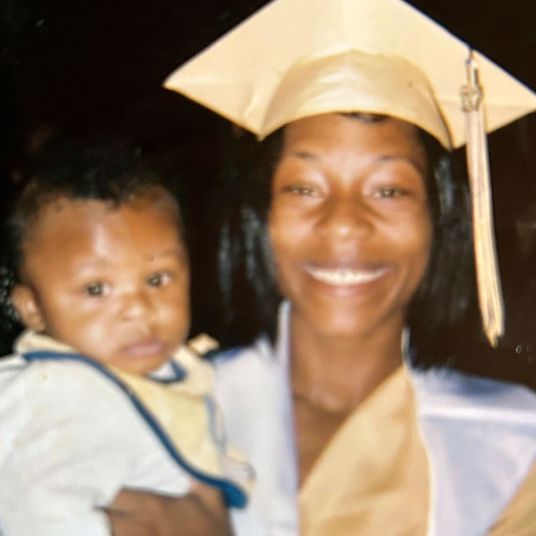
Yeniifer Alvarez-Estrada Glick grew up in Luling, Texas, a rural town about an hour’s drive south of Austin. By the age of 26 she had developed health conditions familiar to the poor: hypertension, diabetes, and swelling of the heart. She also lacked the health insurance she needed for preventative care. When she became pregnant in 2021, she was high risk by default.
The local hospital, as The New Yorker recently reported, was ill-equipped to treat pregnant people in crisis. There was no OB/GYN, and the women in her family routinely traveled 30 miles away or further for care. It had one baby-warming crib, and that was missing a wheel, “A nurse had to prop it up with her feet to prevent the newborn from falling out while the doctor received obstetrics counsel over the phone from a specialist in Austin.” An employee told the magazine: “Anything that fails in society, anything that’s broken, ends up being the emergency room’s problem.”
Alvarez became the emergency room’s problem. In her seventh week of pregnancy, she started bleeding and struggled to breathe. Doctors at the Catholic hospital, part of the Ascension Seton network, “didn’t raise the possibility of a therapeutic termination with her” when she went to the E.R. for help, according to The New Yorker. The state’s six-week abortion ban, known as S.B. 8, limited her options. Though the law’s medical exemption may have qualified her for an abortion, health-care professionals would be taking a risk by “raising the emergency flag,” as The New Yorker put it.
As her high-risk pregnancy progressed, she got sicker and was transferred, for a time, to an Ascension hospital in Austin. When she was discharged, her family “wondered if she would have been kept in the hospital longer had she been insured.” Then the Supreme Court overturned Roe v. Wade, allowing every other state to do what Texas had already done in banning abortion. On July 10, two weeks after the ruling, she went to the E.R. in Luling again. This time she had no pulse when she arrived via ambulance. Doctors tried but failed to save her.
Medical professionals who reviewed her medical file told The New Yorker that a therapeutic abortion — had it been offered, and had she accepted it — would have “probably” saved her life. A maternal-fetal expert interviewed by the magazine concluded that her death was “a consequence of both S.B. 8 and a crisis long predating it: Texas’s inadequate funding of the medical needs of the poor.” Not once during her time on the planet did she register as a full human being to conservative lawmakers in Texas. As a low-income immigrant woman with no health insurance, Alvarez was, to them, a disposable person.
Abortion bans reduce a woman to her reproductive capacity — and if she can’t fulfill this most basic purpose, she is of no use to the state. In Alvarez’s case, the state had also abandoned her well before she got pregnant. A dehumanizing ideology is at work here, encompassing both a hatred for the poor and a disdain for the pregnant. To the right, Alvarez was a nonperson, a vessel, and a flawed one at that. What did her life matter, then, to them? Nothing. Alvarez was killed by a system whose authors cared nothing for her. They transformed themselves into false gods, with the right to make moral judgements and the corresponding power over life and death. Save the unborn, they say; now their laws may be killing people who are already here.
Even if a woman survives a complicated pregnancy, the state may degrade her for wanting to end it. Proponents of abortion bans have little patience for women who can’t fulfill their purpose, as Dahlia Lithwick and Mark Joseph Stern observe at Slate. “Every unborn fetus is the priority over the pregnant person carrying it and must be carried to term at all costs,” the duo write. “So goes the moral calculus of the death-panel judges who now determine how to weigh the competing interests between real, existing human life and a state’s dogmatic fixation with a fetus that, by definition, must be seraphically innocent.”
They cite a recent filing by Tennessee’s Republican attorney general, Jonathan Skrmetti, who is fighting a lawsuit from women who say the medical exception to the state’s ban is too narrow. Though the women have suffered life-threatening pregnancy complications such as sepsis and hemorrhaging, Skrmetti said the women were trying to draw “‘lines about which unborn lives are worth protecting’ by imposing a medical exception ‘of their own liking,’” according to Lithwick and Stern. Conservative lawmakers are the appropriate moral arbiters, then, not women themselves; perhaps they lack the acumen. In Texas, where Alvarez died, women brought a similar suit. The state argues that the lead plaintiff, Amanda Zurawski, lacks standing because she may now be infertile — a direct consequence of the state’s abortion ban.
“If you have opted to move through the political landscape under the view that flawed persons are disposable and potential persons are flawless, the benefit of the doubt will always be afforded to the unblemished, someday rosy-cheeked soul that resides inside of the actual living human with the actual uterus,” Lithwick and Stern write. Women, having sinned, cannot be sinned against. Perhaps they got pregnant when they shouldn’t have, or did something to make a pregnancy go south. Maybe Alvarez should’ve worked harder, and pulled herself out of poverty with nothing but personal grit at her disposal. The fault is hers, and hers alone, to these lawmakers. A fetus, though, has yet to fail and thus deserves salvation.
This makes for cruel policy. When it is put into practice, both woman and fetus can die. Alvarez is buried with her daughter Selene, who was delivered by emergency C-section but did not survive her mother’s demise. Abortion bans aren’t meant to save lives but to empower the lawmakers who write them. They envision a world with themselves at the top, passing judgment on all those beneath them. A person is disposable because someone in power decides they are such. Alvarez’s death was preventable, but in its own way, inevitable. There will be more like her as long as conservatives get their way.






























